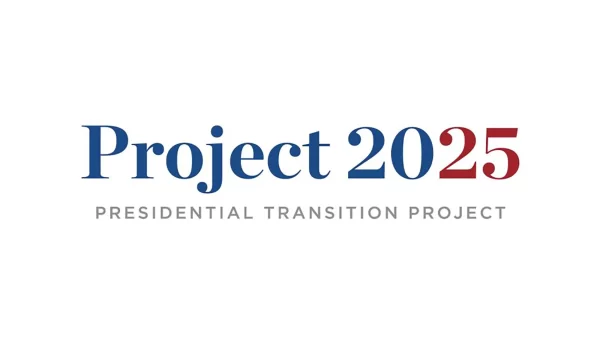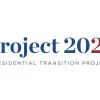The Alabama School Readiness Alliance’s Pre-K Task Force on Monday released its 2022 legislative recommendations for pre-k expansion.
In addition to supporting Gov. Kay Ivey’s recommendation to increase First Class Pre-K investments by $22.5 million, the task force proposes a list of recommendations meant to ensure at least 70 percent of Alabama’s four-year-olds are enrolled in First Class Pre-K classes by the 2025-2026 school year.
The Task Force, formed in 2006, first proposed expanding voluntary pre-k access to all families in 2012, and since then the state’s investment in Alabama’s First Class Pre-K program increased 694 percent, from $19 million to $151.2 million, and the program grew from enrolling six percent of the state’s four-year-olds in 2012 to 42 percent during the 2021-22 school year.
State Rep. Wes Kitchens, R-Arab, last year sponsored a bill that created the joint legislative study commission on expanding access to quality pre kindergarten. Kitchens spoke during an online briefing held by Alabama School Readiness on Monday.
“We want to make sure that those funds are truly going in the most appropriate way,” Kitchens said of the proposed $22.5 million increase in pre-k funding next year. “And we feel that a lot of that is going back into the classrooms to make sure that we are continuing to grow, to make sure that we’re having that high quality and to make sure that we reach that 70 percent threshold.”
Bob Powers, chairman of the Pre-K Task Force, noted an ongoing study by the University of Alabama at Birmingham and the Public Affairs Research Council of Alabama that is following children from pre-k through high school graduation.
“The few numbers that we’ve actually been able to get all the way through 12th grade now, because the funding has been progressive, have proven well,” Powers said. “And we’ve seen that the graduates from K through 12 who’ve been pre-k alumni performed as well or better than those who didn’t have high quality pre-k.”
Collier Tynes, CEO of VOICES for Alabama’s Children, said during the briefing that quality pre-k is good for the children enrolled and their families.
“So many of our state’s issues are driven by poverty,” Tynes said. “Right now working parents are paying, on average, more than state College tuition per child in Alabama just to leave their child in a safe place while they work. We are taxing working parents, with something called childcare.”
Bradley Nelson from the early education center Lighthouse Academy in Mobile, which receives First Class Pre-K funding, said her school is located in an area with a high poverty rate.
“A lot of stuff that’s going on with them, the parents don’t really know or have the resources to get the help that the kids need, and with them being in this program we’ll be able to catch those delays,” Nelson said.
Below are the task force’s recommendations:
In addition to a $22.5 million state funding increase for 2022-2023, our Task Force proposes the following recommendations to ensure that First Class Pre-K reaches at least 70 percent of Alabama’s four-year-olds by 2025-2026, while maintaining the program’s benchmarks for quality and accountability:
- We recommend that First Class Pre-K maintain the ten research-based quality benchmarks measured annually by the National Institute for Early Education Research.
- We recommend that the Alabama Department of Early Childhood Education continue efforts to measure First Class Pre-K quality and outcomes through teacher and student assessments and longitudinal evaluation.
- We support the continued use of a “diverse delivery” grant structure for First Class Pre-K that creates high-quality, state-funded pre-k classrooms in public schools, Head Start and community-based settings (such as child care, nonprofit and faith-based centers). We recommend strategies and policies that result in more First Class Pre-K classrooms being placed in community-based settings.
- We recommend that the state invest in programs to improve the quality of the existing child care infrastructure, which has been severely challenged during the COVID pandemic. Full pre-k expansion will rely on a strong child care system that is ready and equipped to meet First Class Pre-K standards.
- We recognize that parents are their children’s first and most important teachers. With that in mind, we recommend that First Class Pre-K continue to incorporate evidence-based best practices for meaningfully engaging and strengthening families.
- We recommend funding and encouraging partnerships to provide high-quality after school and summer programming so that working parents can enroll their children in First Class Pre-K.
- We recommend that the Alabama Department of Early Childhood convene two- and four-year universities, expand scholarships and expand apprenticeship opportunities to ensure that Alabama has enough teachers to reach pre-k expansion goals.
- We support continued pay parity for lead First Class Pre-K teachers with the state K-12 salary matrix. First Class Pre-K funding formulas for providers should cover the full cost of teacher salary parity with public K-12 education (including benefits).
- We recommend establishing a competitive salary and benefits for First Class Pre-K’s auxiliary teachers, who are required to have a Child Development Associate (CDA) credential or have nine hours of child development coursework. State leaders can work with the CDA Council and other experts to establish a pay scale for auxiliary teachers based on experience. First Class Pre-K funding formulas for providers should be amended to cover increased auxiliary teacher salaries.
- We recommend funding and partnering with school systems, Head Start and other partners to provide transportation, where needed, so children can get to First Class Pre-K programs. This is especially important in Alabama’s rural communities.
- We recommend exploring funding streams for investing in the physical infrastructure for pre-k expansion (buildings with appropriate square footage, age-appropriate classrooms, etc.). Sources of funding could include bonds and other avenues such as local funds, federal American Rescue Plan funding, federal infrastructure funding and business partnerships.





















































